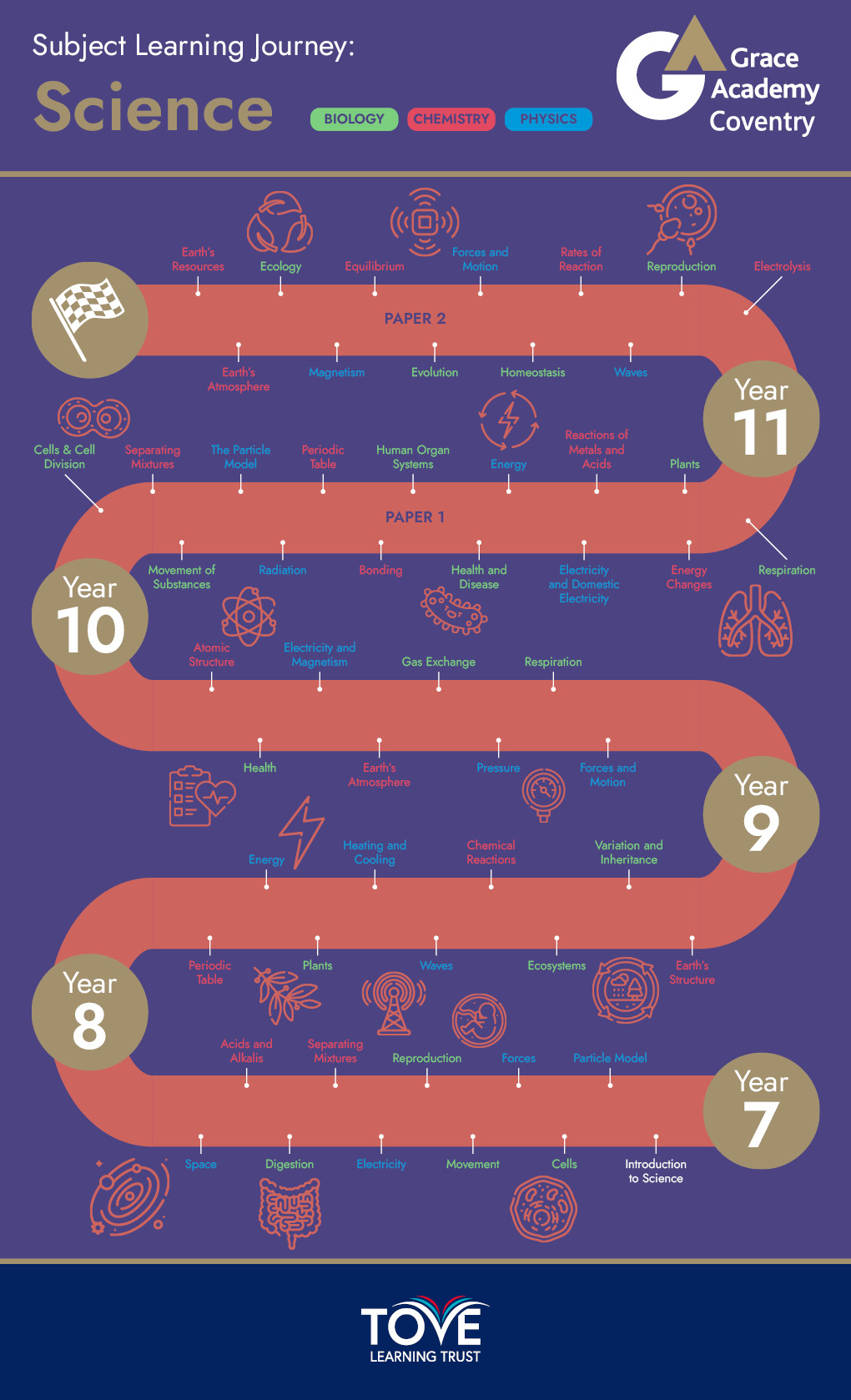Science
Curriculum Intent
Our aim is to provide students with the knowledge of interactions between biological, chemical and physical systems that enables them to explain everyday experiences. We endeavour to empower students with the knowledge required to continue questioning the world around them beyond their Grace journey.
Students will gain key skills which will facilitate their investigation of scientific ideas both theoretically and practically, as well as through extra-curricular events, encouraging a healthy curiosity about the nature of the universe. This allows our students to "think like a scientist", from both a knowledge and skills-based perspective.
Science at Grace Academy will foster an approach that allows our students to recognise the diversity of scientists and promote and ignite aspirations for a career in a scientific field.
Qualification information:
Trilogy (Combined Science): https://www.aqa.org.uk/subjects/science/gcse/combined-science-trilogy-8464
Biology: https://www.aqa.org.uk/subjects/science/gcse/biology-8461
Chemistry: https://www.aqa.org.uk/subjects/science/gcse/chemistry-8462
Physics: https://www.aqa.org.uk/subjects/science/gcse/physics-8463
A-Level Biology: https://www.aqa.org.uk/subjects/science/as-and-a-level/biology-7401-7402
A-Level Chemistry: https://www.aqa.org.uk/subjects/science/as-and-a-level/chemistry-7404-7405
A-Level Physics: https://www.aqa.org.uk/subjects/science/as-and-a-level/physics-7407-7408
BTEC Applied Science: https://qualifications.pearson.com/en/qualifications/btec-nationals/applied-science-2016.html
Curriculum content:
Attached are the curriculum maps which outline the sequence we use in order to structure our learning. Our science department have gone even further and provided a detailed breakdown and justification of our curriculum approach (both attached). If you would like to support your child's learning, we have attached links to Oak National Academy who provide lessons, activities and resources for commonly taught topics. Please use the curriculum map for this subject before visiting:
https://teachers.thenational.academy/subjects/science/key-stages/key-stage-3
https://teachers.thenational.academy/subjects/combined-science/key-stages/key-stage-4
https://teachers.thenational.academy/subjects/biology/key-stages/key-stage-4
https://teachers.thenational.academy/subjects/chemistry/key-stages/key-stage-4
https://teachers.thenational.academy/subjects/physics/key-stages/key-stage-4

